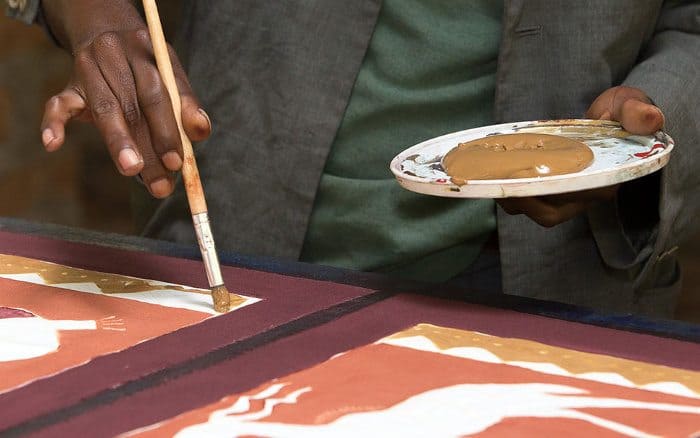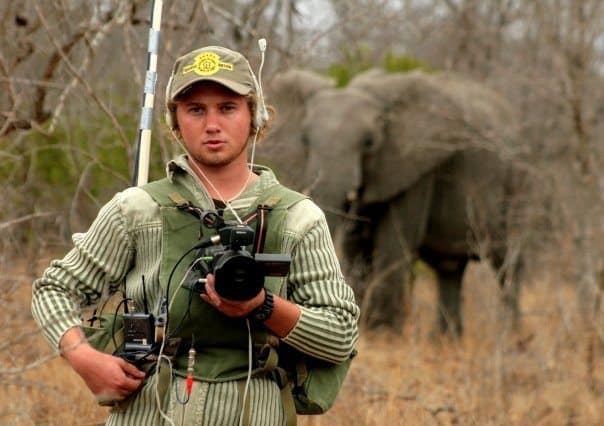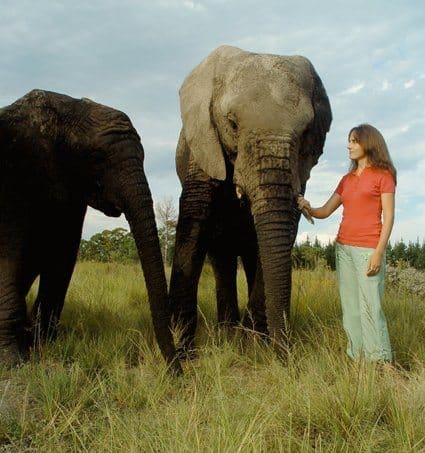Hi Dr. Wilson. Thanks for your time! 🙂 We’re here to learn a little about you…
1. In a few words, please introduce yourself.

I’m Dr. Clay Wilson. I am a veterinarian and game warden volunteering my time in Chobe National Park Botswana to promote wildlife conservation and anti-poaching, and to heal and rehabilitate wounded wildlife mainly due to human interactions.
2. Where are you from and how did you end up doing what you do today in Botswana?
I was born in South Africa and went to School at Onderstepoort in Pretoria. I had a large 20 man veterinary practice in the west coast of Florida for 17 years before I sold out and returned to my native land to make a difference to wildlife conservation.
3. What are some of the projects you’re currently involved in?
– Animal healing on a daily basis.
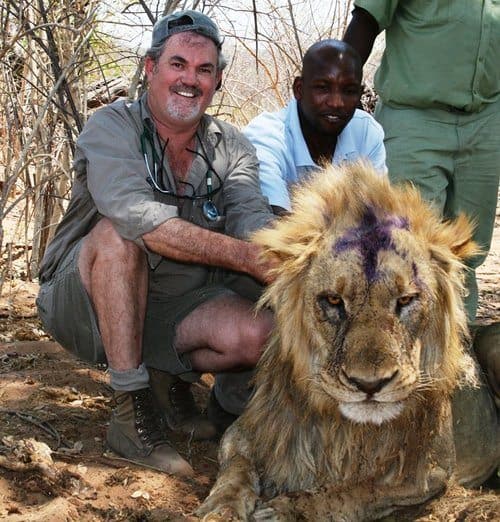
– Vaccinating community domestic dogs against rabies and distemper.
– Acquiring a helicopter from government for anti-poaching.
– Procuring UAV (unmanned aerial vehicles) with IR sensors to patrol the park at night to catch poachers.
– Stopping fish poaching with nets (by Namibians) in the Chobe River.
– Lion study: we plan to provide radio collars for Chobe lions that were wiped out by distemper last year. Hopefully this will enable us to see disease trends and how to prevent them.
– Currently rehabbing a baby zebra and a sable antelope.

– Front line involvement in 911 radio community alert and response.
– I have assisted in catching a major crime ring of house invaders.
– Advising on daily management of the park and its implementations.
– Planning on opening a research and orphanage centre in the park.
4. Could you share with us what you do on a typical day at the “office”? Any sort of routine (or is the word not part of your vocabulary… 🙂 )?
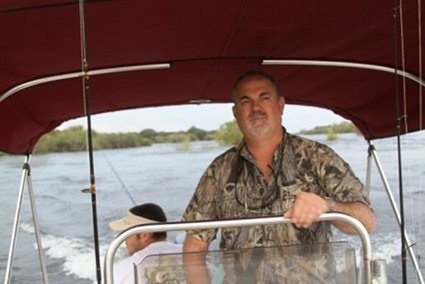
There is no routine. I patrol the park by boat or river at least 4 times a week dealing with problems. A wildlife incident may occur at any time and can take the whole day to resolve. A veterinary or human emergency may happen at any time. Sometimes a week goes by without anything significant happening but that is rare. I seldom spend time in an office.
5. Are there any major obstacles/challenges that prevent you from doing work the way you’d want it to be done?
I am a volunteer so that I don’t have to be involved in the bureaucracy of the system. That way I can speak my mind to superiors without worrying I could get in trouble. But I often do.
The major Challenge is called AFRICA. Nothing ever goes right or to schedule. Things take a lot of time and ass kissing. It’s also a thankless job that always involves me in controversy.
6. Being able to work in harmony with nature and to interact with wild animals must be a thrill! Do you have any anecdotes you’d like to talk about? Dangerous animal encounters perhaps? Moments you felt threatened maybe? Or instances in which you were able to turn around critical situations? Animals you saved, etc…
The incidents are numerous. I have had many successes and many failures. Wounded animals are usually not too people-friendly and I often get attacked by patients I am trying to treat. Most of the stories are on the website.
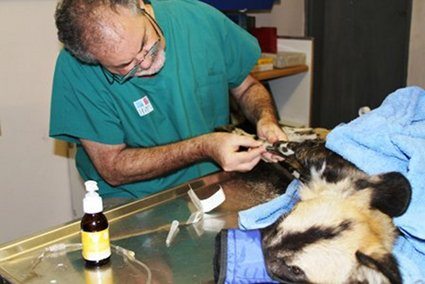
I have had a lion jump on me after I darted it, have had at least 3 elephants that I had to euthanize at my feet or I would have been trampled (all were terminally ill), I had a buffalo chase me when I attempted to dart it; I fell as I turned and saw him at 20 meters coming at me strong when the other warden shot it dead right at my feet (he had a broken leg and would have had to be euthanized in any case).
I also have had encounters with poachers with gunshots fired. Too many to mention! Yet there is nothing more satisfying than treating and rehabilitating sick animals. I have had lions, wild dogs, and warthogs…all sorts of antelopes and birds that have been released back into the wild.
7. How do you see yourself in 10 years from now, and what is your say on the current status of African wildlife and conservation? Bright future?
I see myself either dead from an animal attack (sic), but hopefully I will still be actively involved in the daily running of the park and see that these animals live in perpetuity. I believe that by using the new technology that abounds we can effectively manage and patrol our parks, and with the education of people and hopefully a decrease in the demand of animal products we will have a bright future here in Botswana. The rest of the world I’m not too sure about….
8. What are some of the things you’d still like to accomplish before you leave this planet? Any other “big” dreams?
They are all listed above and you can rest assured that there will be more. If I can leave a legacy behind of education and implementation of progressive ideas of management and application that have significant consequences for the survival and continuation of African wildlife I will die a happy man.
9. Your website (International Wildlife Rescue) highlights some of the activities you deal with at the moment. Is there any way to help? Now is the time for our audience to know how to get involved.
I have a wish list of things that are needed. If I had $400,000 I could change the world here in Africa, I have expended all my life’s savings into wildlife and I now have to rely on donations and grants. If I could spend half as much time in the bush doing well as I do on the internet begging for funding, a lot more would be accomplished.
One day, I will need volunteers to assist me so I can delegate. I am only one person and if it were not for my girlfriend Laura that keeps me straight I would have gone wild a while ago.
Thank you Dr. Clay! 🙂
